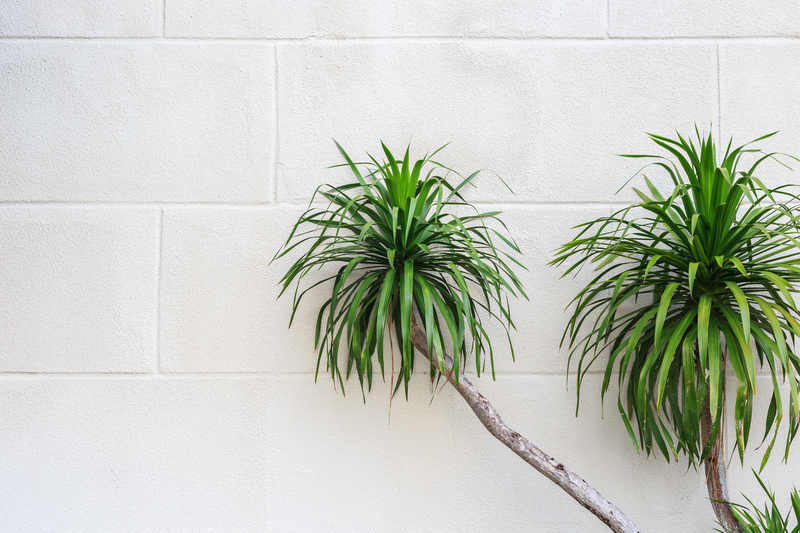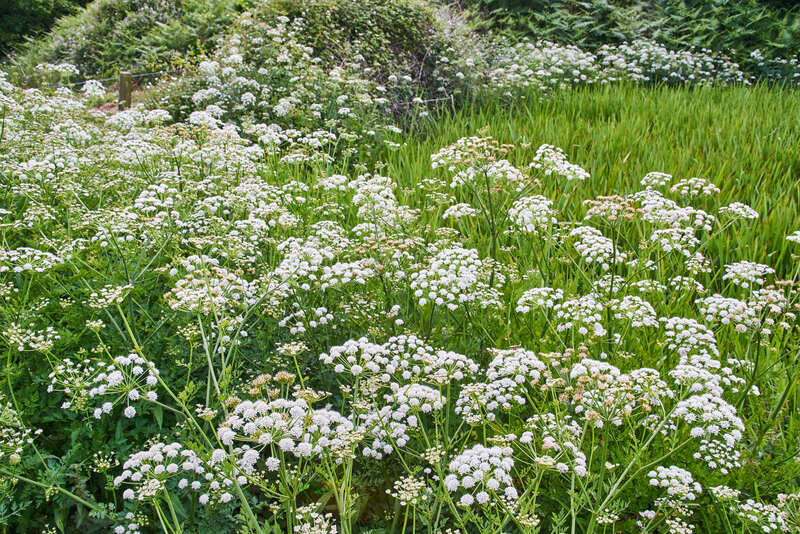Winter Care Tips: Protect Your Garden Plants Effortlessly
Posted on 28/05/2025
Winter Care Tips: Protect Your Garden Plants Effortlessly
As the cold months approach, every gardener wonders: How can I keep my beloved plants safe when the chill sets in? The good news is, with some smart planning and easy techniques, you can maintain a vibrant garden even during winter. This comprehensive guide will offer you actionable winter care tips to protect your garden plants effortlessly and set the stage for a beautiful, healthy spring.
Why Winter Plant Care Matters
Winter can be tough on garden plants. Freezing temperatures, biting winds, and heavy snow can damage roots, foliage, and stems. If not taken care of, your precious plants could suffer or not survive the season. Understanding the unique challenges of winter gardening is the first step in preserving the health of your plants and ensuring your garden thrives year-round.
- Prevent Frost Damage: Freezing can rupture plant cells and destroy fragile parts.
- Protect Roots: Cold soil can harm root systems, especially in shallow-rooted varieties.
- Reduce Stress: Seasonal preparation lessens plant stress, improving survival rates in spring.

Assess Your Garden's Needs
Each garden is unique. Before you start, identify the specific needs of your plants and your local climate:
- Hardiness Zone: Know your USDA Plant Hardiness Zone to understand which plants are at risk.
- Plant Types: Distinguish between perennials, annuals, evergreens, and vulnerable root crops.
- Microclimates: Observe areas that get more sun or wind and adjust protection accordingly.
Essential Winter Care Tips for Garden Plants
1. Mulch: Your Best Winter Ally
Adding a layer of insulating mulch is one of the best winter care tips to safeguard your garden plants effortlessly:
- Insulation: Mulch stabilizes soil temperature, reducing freeze-thaw stress on roots.
- Moisture Retention: It keeps soil moist, protecting roots from drying winter winds.
- Organic Matter: Materials like straw, leaves, compost, or wood chips enrich the soil.
How to Apply Mulch for Winter Plant Protection:
- Apply a 2-4 inch layer around the base of perennial plants and trees.
- Keep mulch a few inches away from stems to prevent rot.
- Refresh as needed, especially after heavy rain or snow.
2. Stop Pruning Too Early in Fall
Cutting back plants in late fall can do more harm than good. Many plants benefit from old growth left over winter; it offers natural protection:
- Insulates New Growth: Dead stems and leaves shield tender buds.
- Deters Frost Cracks: Pruning stimulates new growth that is sensitive to cold snaps.
Tip: Wait until early spring to prune perennials, roses, trees, and shrubs.
3. Protect Plants From Frost
Frost is the enemy of many tender plants. To protect them:
- Cover With Frost Cloths: Use breathable fabrics or burlap, not plastic, to avoid trapping moisture.
- Bring Potted Plants Indoors: Move delicate or tropical varieties to garages or sunrooms.
- Water Before Frost: Moist soil stores heat and can help protect roots.
Remove covers in the morning once the air warms up to prevent overheating.
4. Watering Wisely in Winter
Plants still need water, but their needs change during the cold:
- Water deeply before the ground freezes.
- Container plants: Check regularly since pots dry out faster and freeze easier.
- Reduce frequency, but don't let roots dry out completely.
Avoid watering when frost or freeze is expected overnight, as wet plants are more susceptible to damage.
5. Wind Protection Techniques
Biting winter winds sap moisture and can damage delicate plants. Try these wind protection techniques:
- Install Windbreaks: Use fencing, hedges, or even temporary barriers with burlap or garden fabric.
- Cluster Pots Together: Grouping pots minimizes exposure.
- Relocate Sensitive Plants: Move vulnerable pots to protected spots like patios or under eaves.
6. Protecting Evergreens and Shrubs
Evergreens lose moisture through their leaves in winter and are especially prone to desiccation:
- Apply Anti-Desiccant Sprays: These natural waxy coatings reduce moisture loss.
- Wrap Shrubs: Use burlap to wrap larger shrubs, securing the material loosely to avoid damage.
- Water well before the ground freezes for best results.
Specialized Care for Different Plant Types
Perennials
- Leave dead foliage until spring for natural insulation.
- Divide and replant in early fall, allowing roots to establish before the freeze.
Annuals
- Remove and compost dead annuals, as they will not survive frost.
- Collect seeds if you wish to replant next season.
Trees and Shrubs
- Protect young tree trunks with tree wrap or guards to prevent sunscald and animal damage.
- Mulch generously around the base to insulate roots.
Bulbs
- Plant spring-flowering bulbs in the fall for natural winter insulation.
- Mulch over bulb beds after the first frost.
- Lift and store tender summer bulbs indoors if local winters are harsh.
Container Plants
- Use frost-resistant pots to prevent cracking.
- Move pots to sheltered locations, or bury them in the ground for added protection.
- Raise pots off the ground to improve drainage and prevent waterlogging.
Effortless Tools & Materials for Winter Plant Care
- Mulch: Straw, bark, wood chips, or leaf mold
- Frost Blankets: Garden fabric, burlap, or old sheets
- Watering Can: For targeted moisture without soaking leaves
- Plant Covers and Cloches: Reusable and easy to install over flowerbeds
- Windbreak Fencing: Temporary or permanent to shield delicate areas
- Tree Guards: To protect trunks from frost and animals
Common Mistakes to Avoid in Winter Garden Protection
- Not Mulching Adequately: Thin mulch won't insulate roots properly.
- Pruning at the Wrong Time: Wait until winter has completely passed.
- Forgetting to Water in Winter: Dry spells can harm dormant plants.
- Using the Wrong Covers: Plastic holds moisture and can damage plants during sunny days.
- Leaving Tools Outside: Frozen or wet tools deteriorate rapidly over winter.
Effortless Winter Plant Care: At-a-Glance Checklist
- Assess garden & plant needs early
- Apply protective mulch
- Avoid early fall pruning
- Shield from wind & frost
- Adjust watering, prevent drought
- Cover or move potted plants
- Use anti-desiccant sprays for evergreens

Frequently Asked Questions About Winter Garden Protection
Can I plant new trees or shrubs during winter?
In most regions, it is best to plant new trees and shrubs in the early fall or spring. Root systems need time to establish before freezing sets in. If you must plant during winter, choose hardy varieties and provide extra mulch.
Do all plants need to be covered in winter?
No, many hardy perennials and established shrubs do just fine without extra covering. Focus on tender, young, or potted plants, and those outside their typical USDA zone.
How do I revive winter-damaged plants in spring?
Wait until growth resumes before pruning away dead or damaged parts. Fertilize gently and water thoroughly to help plants bounce back.
What is the best mulch type for winter plant protection?
Organic, loose materials like straw, shredded leaves, pine needles, or bark are ideal. Avoid heavy, dense mulch that can smother plants.
Final Thoughts: Keep Your Garden Thriving Year-Round
Effortless winter garden care begins with preparedness and small, consistent efforts. By following these winter care tips to protect your garden plants, you can sleep easy knowing your garden is shielded from the harshest winter elements.
Remember: Mulch, proper watering, timing, and protective coverings are your best friends when it comes to keeping your garden plants safe in winter. With these simple strategies, your garden will greet spring healthier and more beautiful than ever. Happy Gardening!
Latest Posts
Solutions for Soothing the Winds in Your Garden Sanctuary
From Lawn to Lounge: Designing Amazing Garden Seating Spaces
Nature's Playground: Building a Child-Friendly Garden Haven

